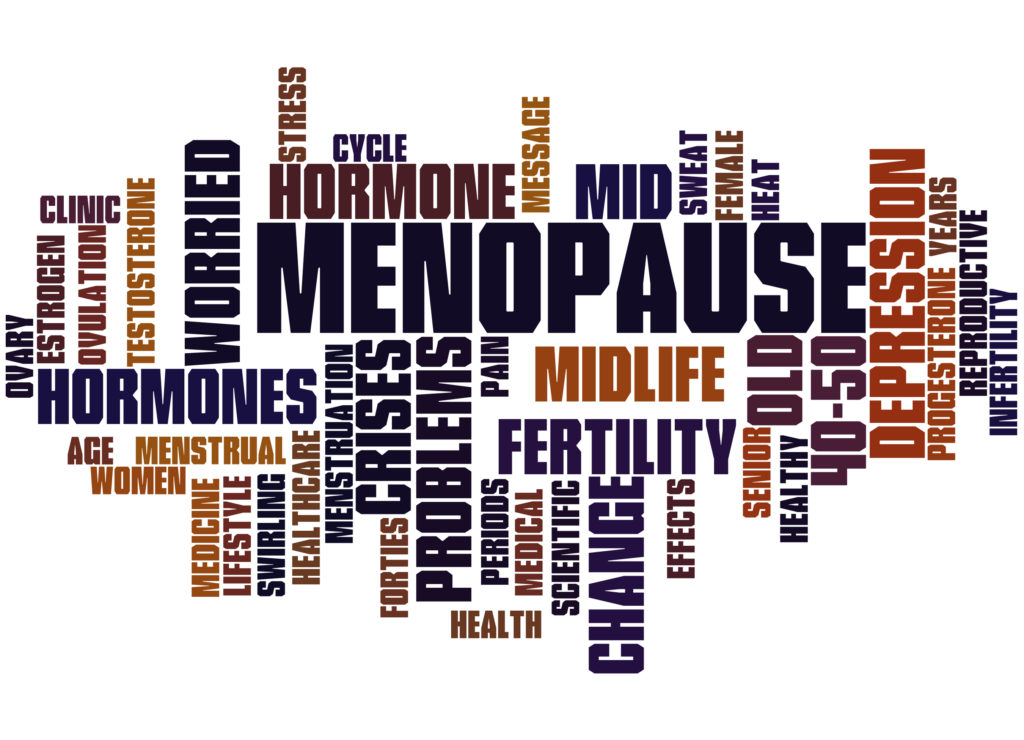
Menopausal Changes
Menopause occurs when a woman stops having monthly premenstrual cycles. It is a normal part of the aging process and marks the end of a woman’s reproductive years. Hormones play a key role in keeping the body in harmony; the main ones being estrogen, progesterone and androgens including testosterone, which control the reproductive system. They are produced in the ovaries and fluctuate according to the menstrual cycle. As you begin to age, the ovaries start to slow down, releasing fewer eggs and producing less hormones. The variation in hormone levels comes with a host of symptoms, ranging from mild to severe and includes hot flashes, night sweats, insomnia, mood swings and loss of libido, to name a few.
There are different phases of menopausal changes which occur over a number of years, namely perimenopause, menopause and postmenopause.
Perimenopause
This is the phase prior to menopause when the hormones begin to fluctuate and can occur anywhere between the ages of 35 and 45. It lasts a number of years until menopause begins and as the symptoms are not always so noticeable, perimenopause is often overlooked by physicians. Most premenopausal women experience changes in their menstrual cycle. Perimenopause is associated with decreased progesterone in the second half of the menstrual cycle, and supplementing with natural progesterone is usually beneficial and helps relieve some of the symptoms.
When the hormonal levels of the ovaries begin to drop, the follicular phase of the cycle decreases, resulting in shorter menstrual cycles of 24 – 26 days instead of 28 – 30 days or longer stretches between menstrual cycles due to infrequent ovulation. Some women do not have any symptoms of perimenopause other than the cessation of their menstrual cycles. However, most women may experience unpleasant symptoms that go hand in hand with hormonal fluctuations 1 – 2 years before menopause, including hot flashes, increasing vaginal dryness, mood swings, breast tenderness, insomnia, joint pain and many other symptoms.
Menopause
Menopause is the period between perimenopause and postmenopause, when the menstrual cycle has stopped for about 12 months. The number of eggs released by the ovaries declines rapidly resulting in erratic menstruation, however the brain continues to send out hormones trying to stimulate the development of ovarian follicles, which results in hormone fluctuations. This can be accompanied by unpleasant symptoms which are experienced during perimenopause such as hot flashes, insomnia and mood swings, amongst other symptoms. With the reduction of eggs, the production of estrogen declines and progesterone is no longer produced. The uterine lining thins and bleeding stops. At this point, menopause has occurred.
Most women enter menopause naturally, but for others menopause can be manifested at a very early age due to Premature Ovarian Failure (POF) or surgery (as in the case of a hysterectomy). POF affects women under the age of 40 and occurs when there is a change in the levels of progesterone and estrogen and the ovaries stop releasing eggs. Unlike premature menopause, POF is not always permanent. Hysterectomies are only performed for a medical condition such as uterine cancer, endometriosis or when the ovaries are damaged due to radiation or chemotherapy. Besides having to endure the unpleasant side effects of menopause, these women are also faced with instant infertility.
Depending on the severity of menopausal symptoms and how it affects your life, bioidentical hormones or conventional hormone therapy is prescribed to help address and relieve some of these symptoms. Natural bio identical hormones will help prevent the acceleration of post menopausal problems in the future like heart disease, osteoporosis and features of aging.
Postmenopause
Postmenopause is reached when a woman has not had a period for 12 months. Another method of checking whether a woman is in postmenopause is by measuring the follicle stimulating hormone (FIS) level by means of a blood test. High levels between 35 – 50 indicate that the pituitary gland is working overtime trying to stimulate the ovaries to release eggs which no longer exist. Most menopausal symptoms, including hot flashes usually cease and energy levels seem to stabilize.
There are a few diseases which may be cause for concern when women enter menopause, including osteoporosis and heart disease. Estrogen plays an important part in renewing bone growth and with the decline of estrogen production in menopause, women are at a higher risk of developing osteoporosis. It is important to maintain healthy eating habits and exercise when you are younger in order to build bone mass and keep your bones strong when you are older.
Coronary heart disease is the narrowing or obstruction of the arteries that surround the heart muscle due to the buildup of plaque. It is also associated with high cholesterol levels in the blood. Women who enter postmenopause should be careful not to smoke, to watch their diet, cholesterol levels and maintain an exercise routine.
Below is a list of menopausal symptoms which can be experienced during the menopausal shift in your body:
- Hot flashes and night sweats
- Mood swings
- Anxiety, feelings of dread and apprehension
- Insomnia
- Irregular periods
- Loss of libido
- Crashing fatigue
- Memory lapses
- Itchy, crawly skin
- Breast tenderness
- Aching sore joints and muscles
- Headaches – either increase or decrease
- Bloatedness
- Weight Gain
- Hair loss or thinning
- Dizziness, loss of balance, lightheadedness
- Changes in body odor
- Gum problems, increased bleeding
- Gastrointestinal problems including indigestion, flatulence and gas pain
- Bad taste in mouth, change in breath odor, burning tongue and roof of mouth
- Changes in fingernails – more brittle
- Tinnitus – ringing in ears
For more information on menopause, please contact our clinic.